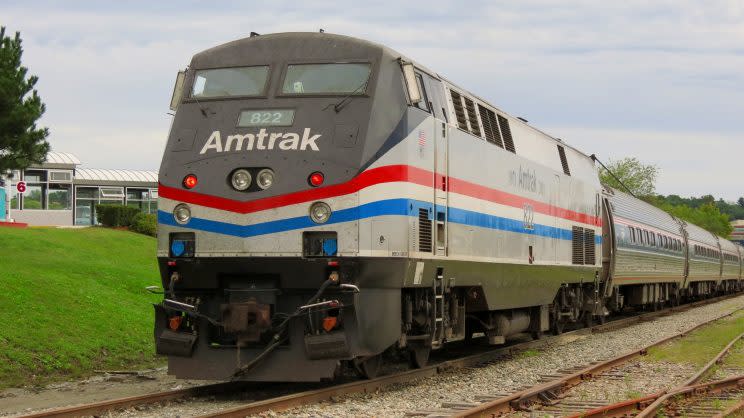Chuck Schumer should let Amtrak act like an airline

Amtrak has an idea for cutting costs and earning more money. Chuck Schumer hates the idea, and would prefer that US taxpayers continue to subsidize cushy seats for train passengers—like himself. He should back down.
Amtrak, the national passenger railway, is considering a new seating section on trains that would be comparable to regular coach on an airline. In other words, cramped. Anybody who patronizes Amtrak, which serves 85,700 passengers on an average day, knows that its first-class seating is one of the best deals in travel. The trains may not always run on time, but there’s free power for your laptop and enough legroom for Kevin Durant, at fares that are sometimes lower than the taxi ride to an airport.
Amtrak co-CEO Wick Moorman said recently that the carrier is “looking at doing some creative things in terms of creating an economy class,” which he explained might be like ordinary airline seating. That could mean 5 or 6 seats across in a railcar, instead of the current 4. And there would be less space between a seat and the one in front of it. Fares, presumably, would be lower for this uncomfier class, to draw riders who might ordinarily take a bus.
Schumer, the Senate Minority Leader, promptly trashed the idea, saying, “Amtrak should not throw out one of the best things about Amtrak and train travel — that you at least get a seat you can sit in and be comfortable.” Schumer, who sometimes commutes between New York City and Washington, D.C., on the train, says the idea is—gasp!—“right out of the airline’s playbook.”
Everybody loves to bash the airlines, of course, but they’ve got one thing going for them that Amtrak doesn’t—they’re profitable, in a cutthroat industry. That’s the whole radical notion behind putting more seats on the train—to earn more money. As is, Amtrak is a chronic money-loser that relies on the federal government for an annual stipend to help offset losses. In its latest fiscal year, the railway posted an operating loss of $227 million. It gets about $1.4 billion in taxpayer money every year.
Amtrak is not a typical company, but a “federal government corporation” similar to the US Postal Service. It’s supposed to operate like a for-profit company, but it must abide by rules that impede profitability. Amtrak operates money-losing service to dozens of cities, for example, that it might not serve if it were purely a for-profit company. The annual federal appropriation is payback from lawmakers who get to keep underused, unprofitable rail service in their states or districts.
Since airlines were deregulated in 1978, they’ve had to scrap for every penny of profitability, with plenty of wrenching bankruptcies along the way. The tight seating in coach reflects the amount of personal space passengers are actually willing to pay. There are other options, of course, such as the familiar first and business classes—normally priced beyond the typical flier’s budget. There are also newer innovations such as “comfort economy,” featuring a couple extra inches of legroom for a reasonable extra cost that’s usually well below $100. For as much as consumers gripe about add-on fees and the basic indignities of flying, airfares have actually declined during the last 20 years, adjusted for inflation, even as airline profits have improved. This is the kind of efficiency capitalism is supposed to produce.
Why should rail service be exempt from capitalism? Amtrak, presumably, wouldn’t replace all of those lavish 4-across thrones with sardine-style seating. Only some cars would be the new cheapo class, while others would remain spacious. Incoming CEO Richard Anderson, who ran Delta Air Lines for a decade and will replace Moorman at the end of the year, would most likely adjust service offerings based on demand, as the airlines do. If bare-bones economy didn’t catch on, he’d dial it back or eliminate it.
Amtrak should at least be allowed to experiment with the sort of innovation regular companies must practice regularly, or else risk extinction. Chuck Schumer will always be able to pay the going rate for a first-class seat. He shouldn’t stand in the way of other consumers with slimmer budgets, or a railway trying to wean itself off taxpayer dependence.
Confidential tip line: rickjnewman@yahoo.com. Encrypted communication available.
Read more:
Rick Newman is the author of four books, including Rebounders: How Winners Pivot from Setback to Success. Follow him on Twitter: @rickjnewman



